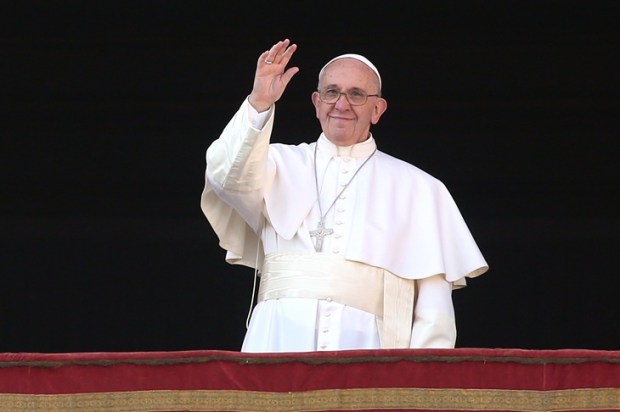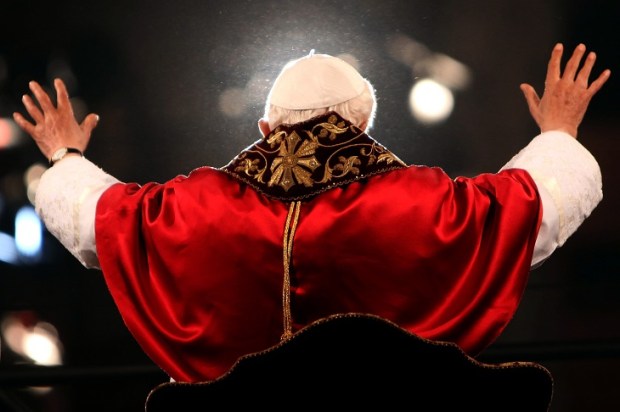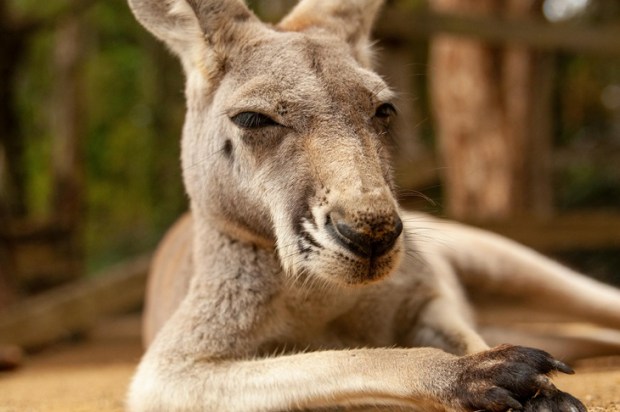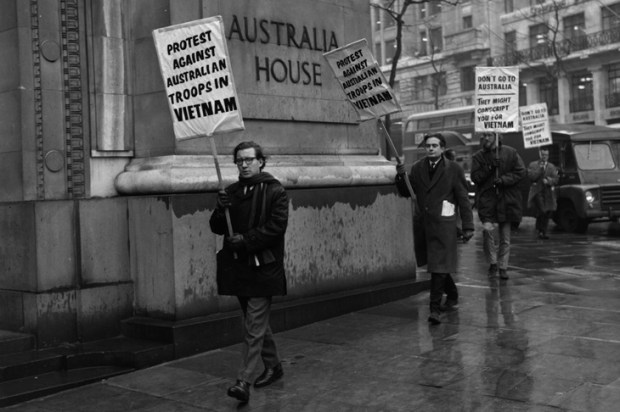I don’t know whether you can still get liquorice allsorts, but they used to be popular with children, if not their dentists. They came in all the bright colours of the spectrum. But suppose a manufacturer of liquorice allsorts, while assuring the public that it made the full range of colours, made them only in, say red and green. Other colours were theoretically available but never turned up in the shops. Suppose further that a recession came along and the manufacturer was bailed out by the taxpayer. Taxpayers who favoured allsorts in other colours than red and green would expect their choice to be met. But no. Eventually they got tired of making repeated requests to widen the colour range, shrugged their shoulders, and resolved to do without allsorts altogether.
The analogy is a rough one, but is it not applicable to the ABC, ‘our’ so-called ‘national broadcaster’? We all pay for it through our taxes, but only a minority – perhaps 25 per cent – use it. A growing number of people neither listen to nor watch it. This is largely because the ABC, like the allsorts manufacturer, refuses to reflect the views of the nation at large, in all their variety. It interests itself only in that restricted section of the population its hierarchs favour, the red and greens you might say, whose shoutiness and positions of privilege in our now thoroughly marched-through institutions procure them a hearing out of proportion to their numbers.
There could be no clearer indication of this than in the recent referendum. Before the vote, audiences could have been in no doubt of the ABC’s antipathy to the ‘No’ case, and once the result was in, through a selection of commentators and interviewers, the ABC gave a continuing platform to the orgy of hatred directed by ‘Yes’ fanatics at the 61 per cent of the nation who, by electing not to racialize the Constitution, frustrated their grand design to start splitting the country in two.
Yet acceptance of the inevitable seems to be the reaction of those who are fed up with the ABC. They’re used to being treated with contempt. ‘Oh well, it’s the ABC, what do you expect?’ they say. Years of leftist bias, years of the ABC pushing sub-Marxist points of view on everything, from racial politics to gender tinkering to climate, from Donald Trump to ‘the republic’, have left them inured to the ABC’s shameless partiality. No one any longer seems to expect any change. ABC bias is just there, they sigh, like the weather. And that suits the ABC fine.
But it needn’t be just there. The ABC can be changed, if ever there were a federal government with the will to do so.
That the ABC is biased is obvious, even if it pretends not to be, protesting its ‘balance’ whenever challenged by producing comparisons of program time devoted to respective points of view, but bias doesn’t lie so much in that as in editorial emphasis, range of interviewees, tone of voice, whether an issue is mentioned or not. It’s there in the person of a young female ‘Indigenous’ reporter, with the disdain for objectivity one now expects from the ABC, telling her audience that ‘all Australians’ had rejected ‘her people’ and threatening ‘black anger’. It’s there in the shrill accusations from talking heads that, in ways they never specify, the ‘No’ case prevailed only through ‘misinformation’– which is pretty rich when ‘Yes’ tried its best to give out no information at all on the small print in its designs. It’s there in the ABC’s gratuitous campaign to alter the map of Australia by substituting alleged Aboriginal place names for ‘colonialist’ ones. Melbourne, for instance, it calls ‘Naarm’ despite the fact that the two places are existentially different. ‘Naarm’ might – might, since you never know how many of these names are the inventions of activist anthropologists and historians – have been the name the original inhabitants gave to the land on which Melbourne is built, but Melbourne, and every other town or city of Australia as it now exists is the aggregation of structures whose existence the original inhabitants could never have foreseen or imagined. (This raises an interesting point regarding the ‘reparations’ the ‘Voice’ was looking forward to demanding: if we compensate the descendants of the original inhabitants by handing back what activists claim as their forebears’ land, do they compensate non-Aboriginal Australians for what planners call the ‘improvements’ on it since 1788? Should they, to use a term dear to the activism industry, ‘pay the rent’?)
Why is no one seriously demanding that the ABC be reformed? It would be easy enough to do. Simply make it a ‘user pays’ broadcaster, like a streaming channel. The more viewers and listeners it could attract the greater its income – and dividends for shareholders if you open it up to private investment, like Qantas. Besides, national broadcasters are an anachronism, a hangover from the days of maple veneer cabinets and crackling foreign voices on the short wave. They are a relic of a time when governments thought radio was too powerful a medium to be in private hands. It is irrelevant in the online free-for-all of the information age, and can’t even be justified on the grounds of its programs being better than those of commercial broadcasters. Many are worse.
A consumer-pays system would satisfy the requirements of both broadcasting and democracy. If the broadcaster says it needs more money, as the ABC does, perpetually, the solution’s in its own hands. That’s fairer to everyone than giving the ABC an additional handout for more of the same of what we get now, paid out of the taxes of people who receive nothing in return.

























